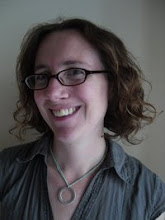I think I may have been a trifle optimistic in my diagnosis of the poetry situation. My brain IS still going like the clappers, but this week it seems to be entirely employed in making lists of what to take into hospital with me, what we still need to buy/acquire and how we are going to create the space for it all in a one bedroom flat, and what I want to write in my birth plan. There is very little scope for poetics in a birth plan, it turns out. Nothing that includes the words 'episiotomy', 'squatting' and 'artifically ruptured' can really aspire to be lyrical.
Interesting thoughts from Adrienne Rich in
Of Woman Born:
Once in a while someone used to ask me, "Don't you ever write poems about your children?" The male poets of my generation did write poems about their children - especially their daughters. For me, poetry was where I lived as no-one's mother, where I existed as myself.Although it was Rich's choice not to write about her children, this passage did remind me that, while no subject is verboten to the male poet, women who write about certain things (pregnancy, motherhood, domestic life, the female body) are condemned as being too limited, or too predictable, or just too damn GIRLY. If men get sappy about their children it is vaguely novel at worst, wondrous and transcendent at best, but if women do it it's redundant and boring - well of COURSE women love their children, duh. Or maybe you just have to be an exceptional poet to get away with it, whatever your gender.
Dear Babe, that sleepest cradled by my side,
Whose gentle breathings, heard in this deep calm,
Fill up the interspersed vacancies
And momentary pauses of the thought!
My babe so beautiful! it thrills my heart
With tender gladness, thus to look at theeI love
Frost at Midnight, but wouldn't we read these words slightly differently, more critically even, if Coleridge were a woman?
Or these from
Waking with Russell by Don Paterson?
Whatever the difference is, it all began
the day we woke up face-to-face like lovers
and his four-day-old smile dawned on him again,
possessed him, till it would not fall or waver;
and I pitched back not my old hard-pressed grin
but his own smile, or one I'd rediscovered.I think I'd love these poems just as much if they were written by women, but then I don't think they could have been. There is, I believe, a reticence among women poets to engage with their children too directly or emotionally in their work, because they fear not being taken seriously. Was that at the back of Adrienne Rich's mind? Did she really want to be 'no-one's mother' in her poetry, or did she just perceive that in the eyes of the poetry establishment, being someone's mother lessened her?
Weeks: 22+1Labels: gender, parenthood, reading - poetry

